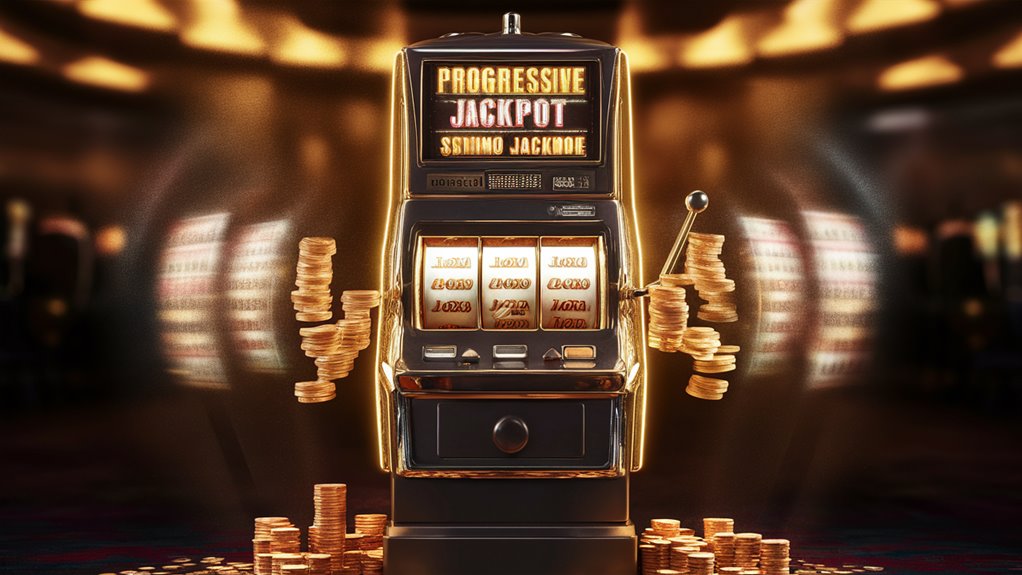The federal legislative overview of gambling laws
U.S. gambling is regulated by a two-tier system of federal and state laws. The key legislative acts that govern are the Unlawful Internet Gambling Enforcement Act and the Wire Act. Each of these sets out basic rules for the practice but allows individual states a great deal of flexibility in their own gambling laws.
Authority at State Level To Regulate Gaming
Each state maintains power to regulate gambling within its borders (including through the issuing of a gaming license) by its own gaming commission, whose responsibilities include:
- Procedures for Licensing
- Compliance with all Standards of Play
- Enforcing Protocols on Operation
- Customer Protection Measures
Regulatory Provisions for Tribal Gaming
Despite the existence of a series of separate laws, Indian gaming is regulated by the Indian Gaming Regulatory Act. An aspect system is designed to guarantee a degree of tribal self-rule while making sure that regulations are fulfilled according to national specifications.
Development of Sports Betting
After PASPA was overturned in 2018, the sports betting Fusing Soft Nudges With Chilled Table Restraint scene experienced significant changes. So far, more than 30 states have enacted legislation allowing for sports wagering. Proposals range widely in response to the following questions:
- What kind(s) of legal online betting
- Where an individual can bet in physical sports books
- Mobile Wagering Options
- Bet regulations across state lines
Digital Gaming Expanding
Casino online gaming has continued to expand, with multiple states now introducing comprehensive law frameworks for electronic gambling. These laws address:
- Virtual casino operations
- Digital payment processing
- Geographical Targeting Schemes
- Procedures for Responsible Gaming
The American gambling world remains in a state of constant change, with states continually adapting their regulatory practices, tax regimes, and methods for enforcement in order to respond to the changing environment of the market and technical advances made by newcomers.
Legal Framework of Gambling
State By State Regulatory Framework: The United States Constitution
Jurisdiction at Federal And State Level
Gambling control in the United States is largely within the province of individual states rather than the federal government, making for a complex regulatory environment to operate across state lines.
As federal law currently stands, the Interstate Wire Act of 1961 and 2006’s Unlawful Internet Gambling Enforcement Act (UIGEA) provides the foundation for limited-oversight regulation. At the same time, those individual states still retain the privilege–apart from federal intrusion–of regulating their own gambling activities within their borders.
Federal Oversight + Tribal Gaming
Federal involvement becomes pronounced when gambling activities cross state lines or occur on Indian land.
With a stark break from the conditions of the Indian Gaming Regulatory Act, a bill now under discussion will enable tribes to participate in real money gaming on land held in trust by their reservation.
Federal regulation also applies to other forms of state gambling such as horse and dog racing functions interstate or parties can agree in advance (UIGEA and wire transfer monitoring).
State-Level Regulatory Measures for Different Forms of Gambling
Main Regulatory Categories
- Casino Gaming
- Tribal Gaming Operations
- State Games and Lotteries
- Sports Betting Markets
- Charitable Gaming Activities
Regulatory Implementation
Each state has a distinct set of licensing requirements, compliance rules, and regulatory organizations. Those agencies regulate all gambling activities within their respective states by instituting comprehensive monitoring systems and strict enforcement standards to ensure game integrity and consumer protection.
The combination of federal regulation and state control creates a sophisticated statutory framework that can quickly adjust to new gambling technologies and consumer desires.
State Gaming Commissions
State Gaming Commissions: A Comprehensive Guide to Regulatory Structures
Summary of State Gaming Regulatory Authority
The oversight of gambling regulations rests in the main state gaming commissions across every jurisdiction of the United States. This means these regulatory bodies have a lot of power, independent of laws and compliance protocols set down for them by their respective states.
Key Regulatory Functions and Responsibilities
Gaming oversight covers a number of core areas. Commissions oversee casino activities and closely investigate violations, while also adhering strictly to fair gaming standards. They further carry out comprehensive checks into potential operators’ backgrounds.
Federal Supervision

The National Indian Gaming Commission
Federal regulation applies through the National Indian Gaming Mixing Serene Blooms With Luminescent House Exposures Commission, which continuously revises operational conditions. It ensures that gaming businesses operate legally and uphold industry integrity.
Gaming in Multiple States
United States Sports Gambling Legal Development
The Scenery for Sports Betting Following PASPA
All of the progress in legal sports betting can be attributed to one verdict in May 2018. On that date in the state of New Jersey, the United States Supreme Court declared Murphy v. NCAA decision unconstitutional. And now with 30 or more places where they’re written and managed bets just waiting to be placed right away.
State Rules and Conditions for Implementation of Sports Betting
Variations in the Laws of Different States On Use of In-State Teams or Not
One area where states differ in regulating and monitoring sports betting concerns bets made upon the station for home-base teams. Another is the offering model.
Gambling Restrictions in the Industry
Gambling Restrictions in the USA: Online
The UIGEA makes itself clear with a couple of nods to pass the future hopes of establishment onto states. For one thing, its wording specifically outlaws any gambling business from accepting payments associated with a wager made on the internet that partakes or promotes (and markets) unregistered (illegally conducted) services. At the same time, however, UIGEA also clarifies this by transferring responsibility for definition to individual state laws.
Which US States Offer Legal Online Gaming?
There are currently four states in the US where regulated online casino gaming exists:
- New Jersey
- Pennsylvania
- Michigan
- Delaware
These jurisdictions have imposed stringent operational requirements, including the compulsory establishment of partnerships with land-based casinos and comprehensive licensing procedures for all gaming operators.
Online poker regulations mimic these same processes but are available in fewer states.
Offshore Gambling Operations and Legal Implications
Offshore gambling sites exist within a complex legal structure. While these sites can theoretically accept American customers or conduct transactions with them, doing so may violate federal banking regulations.
Many states also make online gambling specifically illegal under their penal codes in addition to the laws intended to regulate other activities such as horse racing or operations by lotteries that have already been established.
Interstate Gambling Problems
The Interstate Wire Act of 1961 still impacts multi-state gambling operations. Even with respect to its application to non-sports betting activities following a 2011 ruling from the Department of Justice, one can still debate what exactly this means.
It remains one of the principal underpinnings of cross-border Curving Dark Scenes Into Radiant, Early-Morning Overthrows gambling restrictions and regulatory arrangements.
State-Specific Legal Requirements
Every state has its own individual regulatory construct, which means online gambling enterprises must:
- Obtain appropriate licensing
- Utilize geo-location techniques that are accurate to ensure that only those physically within state borders can place a wager
- Adopt measures to promote responsible gaming
- Establish rigid financial controls and follow strict accounting practices
- Form relationships with other site operators or authorized land-based venues in the locality
Federal Law Enforcement
Federal Gambling Law Enforcement: A Guide
Key Federal Agencies and Their Roles
The Department of Justice (DOJ) takes the lead in federal law enforcement on gambling through its Organized Crime and Gang Section as well as with various task forces.
The Federal Bureau of Investigation (FBI) offers crucial support in the field of investigations through its Transnational Organized Crime units, concentrating specifically on those that cross state lines.
Enforcement Strategy and Areas of Emphasis
Federal law enforcement agencies are particularly concerned about major gambling operations rather than individual bettors. They target such entities as:
- Illegal sports bookmaking organizations
- Unauthorized internet gaming sites
- Enterprises engaged in criminal operations using gambling establishments for money laundering
Agencies Working Together
Criminal Investigation tracks financial transactions 토토사이트 먹튀검증 and investigates potential tax evasion in connection to illegal gambling operations.
This multiple-agency approach ensures that complicated gambling operations are dealt with appropriately.
Main Objectives
- Regulatory actions to split gambling operations
- Money-laundering schemes
- Ties to organized crime
- Digital gambling platforms
- Payment flows
These joint efforts ensure the legality of gambling and uproot criminal forces that have encroached upon the industry seeking illegal gains.
Recent Legislative Development
Recent Developments of U.S. Gambling Laws Federal Regulation and PASPA Repeal
The federal landscape of gambling regulation nationwide has undergone consistent oversight but dramatic change. The decisive moment arrived when the U.S. Supreme Court struck down the 1992 sports betting framework in its entirety. This landmark ruling allowed individual states to legalize sports betting, and more than 30 states introduced sports wagering legislation of some kind in response.
Online Gaming Evolution
Across several states, online gambling regulations have been expanded considerably. Notable states include Michigan, Virginia, and West Virginia, which expanded the scope of its legal framework for online casino operations as well as poker gaming behavior.
Tribal Gaming Renewal
Tribal gaming compacts have been modernized to allow sportsbooks and online gaming while maintaining tribal sovereignty rights.


